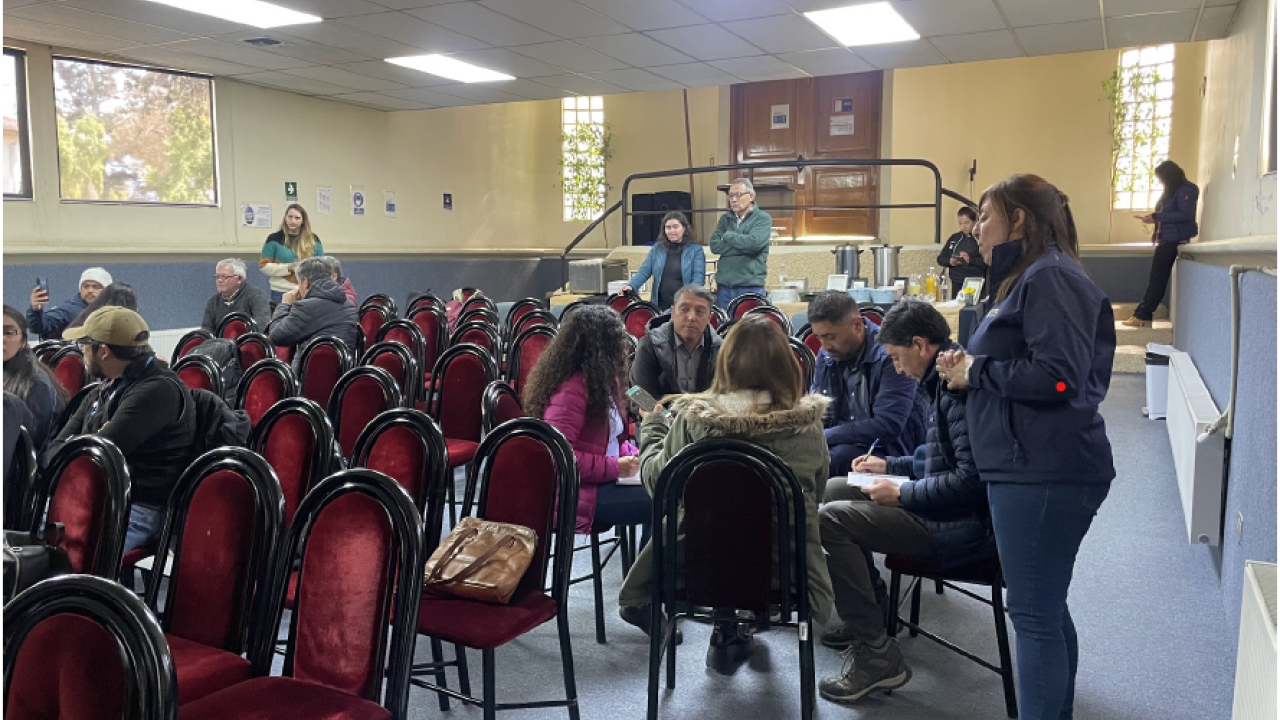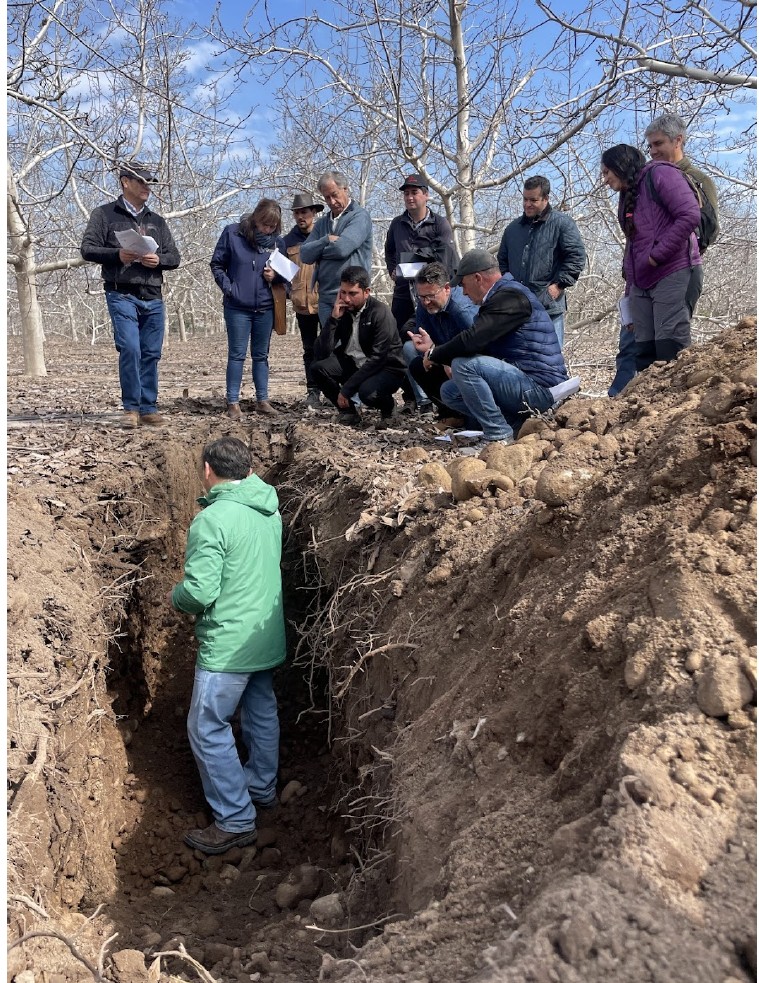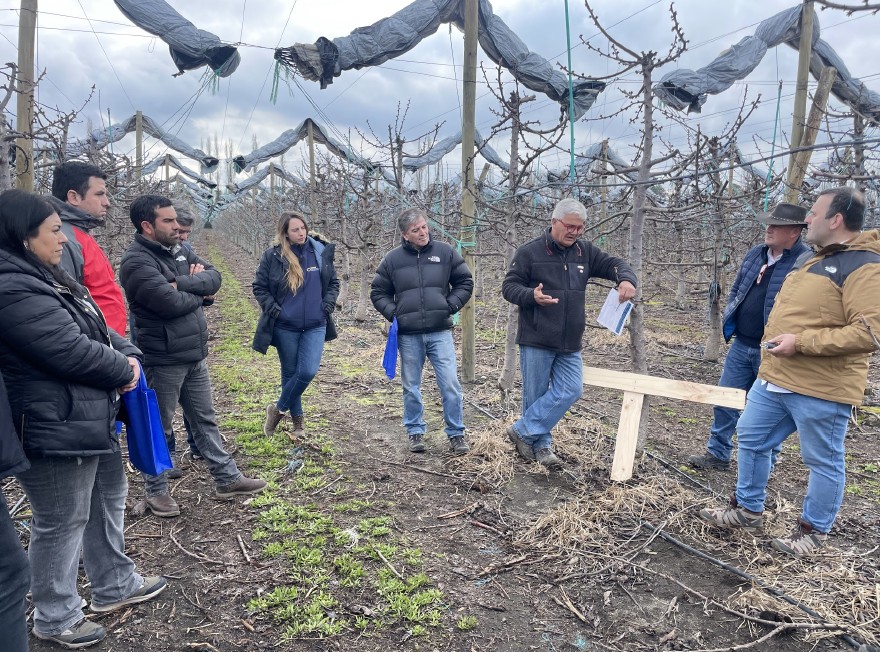
Katelyn Mann: Monitoring & Evaluation Capacity Building in Agricultural Extension
Quick Summary
- Monitoring & Evaluation Capacity Building in Agricultural Extension
Prior to coming to UC Davis’s International Agricultural Development Masters program, I worked in Peru with the Andean Alliance for Sustainable Development (AASD), a small development organization supporting high-altitude farming communities in the Sacred Valley. During my time with the organization, I helped lead a student group in the development of a monitoring and evaluation (M&E) plan for the AASD’s greenhouse program, and supported coordination of the first farmer-to-farmer training. My time with AASD opened my eyes to the importance of M&E to ensure development projects are obtaining the impacts they hope to have.
As a IAD Masters student, I knew I wanted to continue working in South America and develop a deeper skillset in extension methodology and M&E in agricultural extension. My advisor, Dr. Amanda Crump, had an existing relationship with the UC Davis Chile Center for Life Sciences Innovation (UCD Chile). Through her connections, I developed a proposal to help UCD Chile build a M&E plan for their agricultural extension program.
UCD Chile was founded in 2015 with support from the Chilean government and from UC Davis to support the collaboration of Chilean and Californian scientists to work on solutions for problems faced by both regions in the sectors of agriculture and the environment. Both Chile and California feature Mediterranean climates that support the production of high-value export-oriented crops, such as wine grapes, nuts, and fresh fruits. Additionally, both regions face significant challenges related to water scarcity, climate change impacts, and the need to balance economic competitiveness with environmental sustainability. UCD Chile’s Innovation and Extension team work to make sure the research done at the center is responsive to farmers’ needs and returns to farmers’ to help them inform their production practices.

To support the work of the Innovation and Extension team, my work addresses two critical challenges faced by many extension programs: the need for robust monitoring and evaluation (M&E) and the necessity of defining a clear, strategic niche.
Chile boasts a pluralistic extension system, a mix of public agencies, private companies, and non-profits all working to support farmers. While this diversity is a strength, it also presents challenges. Many programs struggle with a common issue: a lack of dedicated M&E capacity. Without a strong system to track progress and measure outcomes, it’s difficult to know what’s working, what’s not, and how to truly demonstrate impact. Additionally, in a pluralistic extension system, an extension provider must refine its unique niche to avoid duplication and maximize its contribution to the agricultural sector. Extension providers need to strategically plan their programs around gaps in service and an understanding of the strengths they provide in order to ensure their resources create the largest impact possible.
My research is a collaborative effort to tackle these very issues. I’m partnering with the UCD Chile to develop two concrete tools: a tailored Monitoring & Evaluation Plan to strengthen their ability to learn from and prove their impact; and a Strategic Niche Analysis, informed by interviews with key stakeholders and extension experts across the Chilean and Latin American agricultural sector, to identify where UCD Chile’s unique capabilities can fill the most critical gaps.

For me, this project is a great opportunity to further develop my M&E skills and learn more about how diverse extension systems work and can best serve farmers. My aim is to have this project directly support UCD Chile in refining and focusing their extension work, and equipping them with a clearer strategy and the tools necessary to measure their progress. UCD Chile is a hub of incredible expertise, and I hope to be one small part in helping this expertise be used to build a more sustainable and effective agricultural sector in Chile.